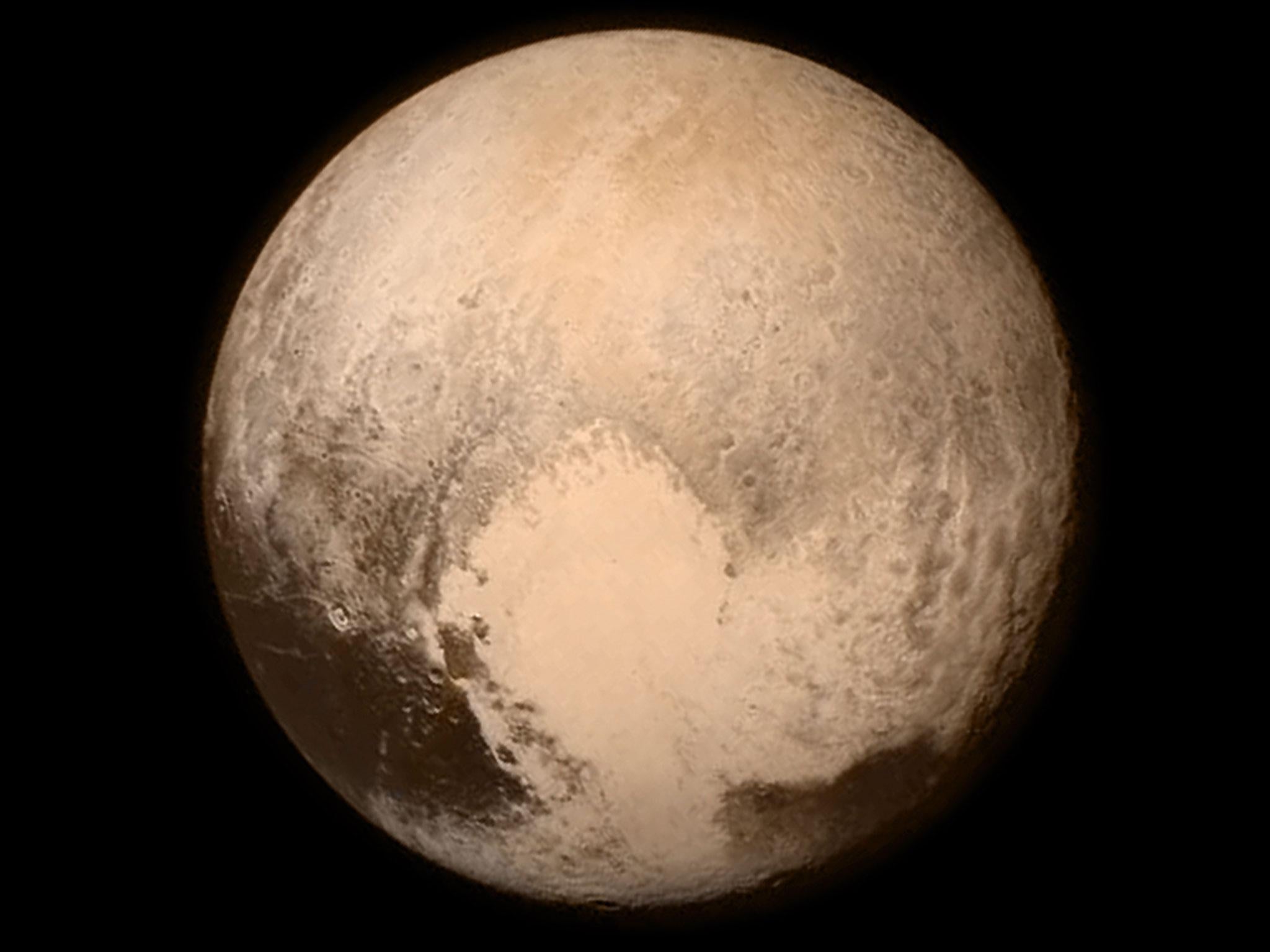Pluto's frozen surface may hide an ocean, scientists claim
Discovery adds Pluto to list of worlds beyond Earth believed to have underground oceans — some of which could potentially harbour life

Your support helps us to tell the story
From reproductive rights to climate change to Big Tech, The Independent is on the ground when the story is developing. Whether it's investigating the financials of Elon Musk's pro-Trump PAC or producing our latest documentary, 'The A Word', which shines a light on the American women fighting for reproductive rights, we know how important it is to parse out the facts from the messaging.
At such a critical moment in US history, we need reporters on the ground. Your donation allows us to keep sending journalists to speak to both sides of the story.
The Independent is trusted by Americans across the entire political spectrum. And unlike many other quality news outlets, we choose not to lock Americans out of our reporting and analysis with paywalls. We believe quality journalism should be available to everyone, paid for by those who can afford it.
Your support makes all the difference.A hidden ocean may be buried deep beneath Pluto's frozen surface, scientists have claimed.
Researchers said distant Pluto may have rolled over on its axis as a result of tidal forces caused by its largest moon Charon.
They suggest the extra weight of an underground sea is the most likely explanation the heart-shaped region of Sputnik Planitia is locked in alignment with the moon.
Their findings are based on observations from Nasa's New Horizons spacecraft, which made an unprecedented flyby of Pluto in 2015.
The two studies, published in the journal Nature, add Pluto to the list of worlds beyond Earth believed to have underground oceans — some of which could potentially harbour life.
The ocean is likely slushy with ice and lies 93 to 124 miles (150 to 200km) beneath the dwarf planet's icy surface and is around 62 miles (100km) deep, planetary scientist Francis Nimmo of the University of California, Santa Cruz, said in a statement.
He suspects the ocean is primarily water, with some ammonia or other "antifreeze" thrown in. Despite being around 40 times further from the sun than Earth, Pluto has enough radioactive heat left over from its formation 4.6 billion years ago to keep water liquid, he suggested.
However, with much of the surface covered in ice, Pluto is not a prime candidate for life, Massachusetts Institute of Technology planetary scientist Richard Binzel said.
But he added "one is careful to never say the world impossible".
Subsurface oceans may also exist on other similarly sized words orbiting in the Kuiper Belt on the fringes of our solar system, Mr Nimmo said.
"They may be equally interesting, not just frozen snowballs," he added.
Join our commenting forum
Join thought-provoking conversations, follow other Independent readers and see their replies
Comments